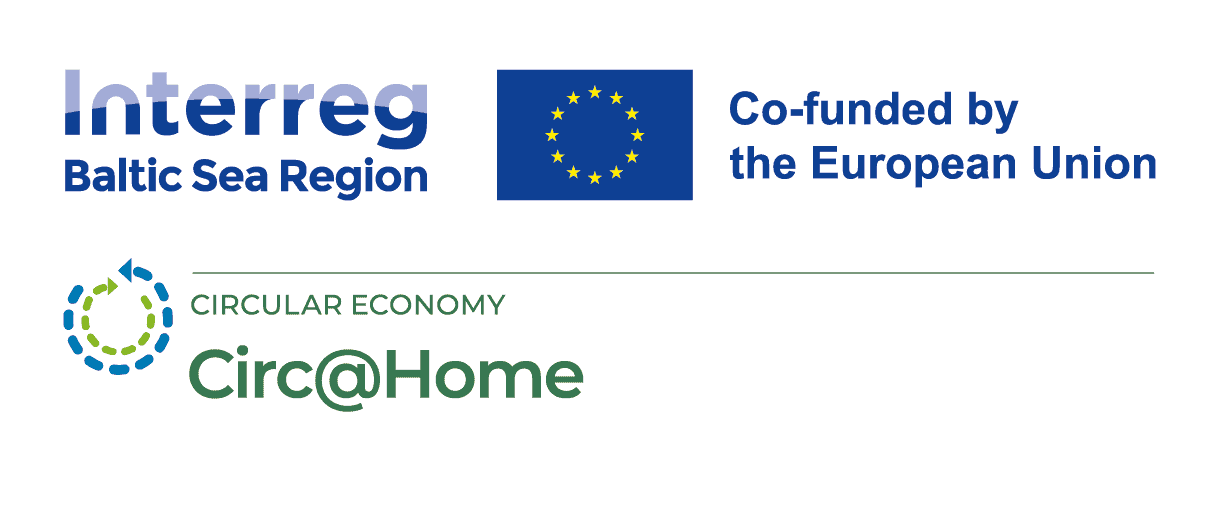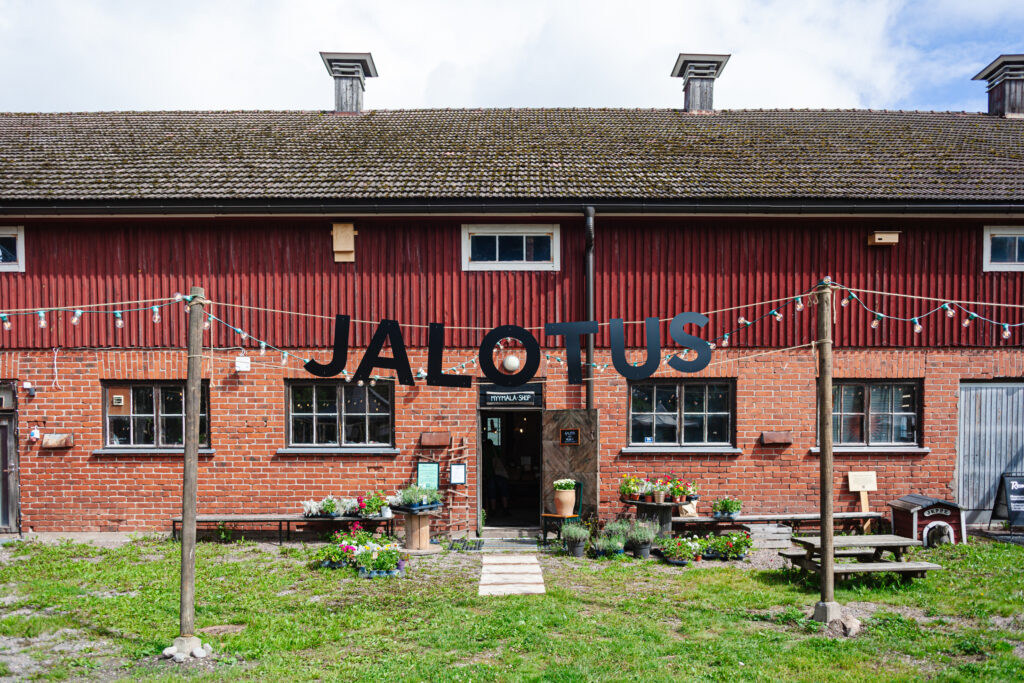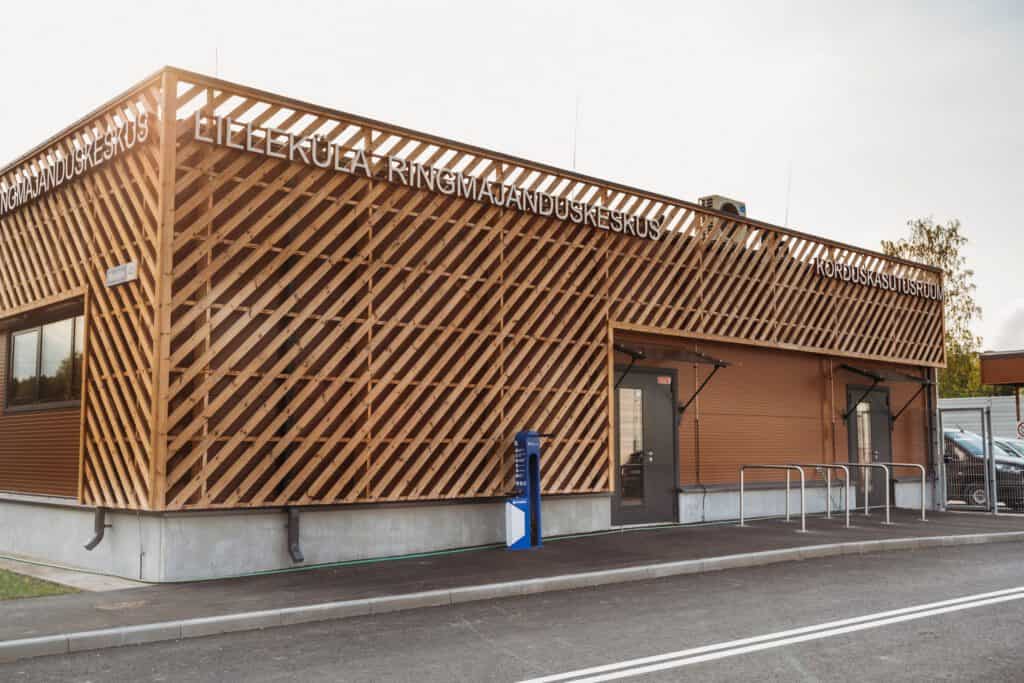
Meet the Circularity Hubs
17 November 2025
Hamburg Circularity Hub (Goldbekhaus)

Event series “Im Kreis gedacht” (“Thinking in circles“) in the courtyard of Goldbekhaus
Credit: Ali Haji
In Hamburg, the cultural and community center Goldbekhaus will turn into a Circularity Hub. It will become a networking and information platform. Planned activities include community swap events and repair cafés that will bring the principles of reuse and sharing into everyday life.
The hub will also connect circularity to broader urban issues such as local food systems, climate protection, and nutrient cycle closure. The Hamburg hub will act as both a local catalyst for behavior change and a demonstration site for systemic transformation, linking cultural engagement with sustainability.
Hub Coordinators:
Goldbekhaus – Center for District Culture Winterhude
Kerava Circularity Hub (Kivisilta)

Jalotus – Transition Movement Finland. Credit: Anna Evilä
In Kerava’s Kivisilta residential area, the Center for Sustainable Lifestyles operated by Jalotus – Transition Movement Finland will serve as a foundation for a new Circularity Hub. The hub will be developed through open innovation together with local households, where residents will co-create practical solutions to everyday sustainability challenges.
The activities will focus on reducing household waste, promoting shared use of resources, and supporting community-based circular practices. The aim of the Jalotus Center is to provide services and activities for the neighborhood that would help local households put circular economy principles into practice in their daily lives.
By embedding the hub directly within a residential area rather than treating circularity as an abstract concept, it becomes a visible, tangible, and practical part of everyday life.
Hub Coordinators:
Jalotus Transition Movement Finland, association
Rural Women’s Advisory Organization
Riga Circularity Hub

Sarkandaugava neighbourhood. Credit: Community center ES14
In Riga, an Urban Circularity Hub will be developed in the Sarkandaugava neighbourhood. The piloting will take place in the neighbourhood’s building at Sīmaņa Street 14, a former school building owned by the municipality. This hub will serve as the base for testing circular services—such as reuse, renting, sharing, swapping, and repair—so they are easily accessible to households.
A central initiative is the creation of a “Library of Things”, which will allow people to borrow items instead of buying them. In addition to this, the Riga team plans to develop several other circular activities, including urban gardening, SWAP shop, sewing and repair of textiles and bicycle repair service.
To ensure successful implementation, the hub will also host community events, sports and cultural events. These will help build strong community involvement and foster circular lifestyles.
Hub Coordinators:
Vidzeme University of Applied Sciences
Tallinn Circularity Hub

Lilleküla Circular Economy Centre. Credit: Ellen Rudi, Tallinn Strategic Management Office
Estonian partners will develop a service model for a district-level Circularity Hub. This is already a functioning circularity centre with textile and upholstery makerspaces, and reuse rooms in Lilleküla, Tallinn.
Through the pilot, Tallinn Circular Economy Centre is enhancing the hub by involving more local stakeholders and adding new elements – such as a food pantry for circular food consumption. The service model will be created in a co-creation process to ensure it reflects the real needs of the neighbourhood.
Hub Coordinators:
Tallinn Circular Economy Centre
Stockholm Environment Institute Tallinn Centre
Baltic Environmental Forum (BEF) Estonia
Valmiera Circularity Hub

Inside Makerspace DARE. Credit: Makerspace DARE
In Valmiera, the project will transform the DARE Makerspace into a Circularity Hub that empowers households and local services to adapt more circular habits. One of the key activities will be a circular design challenge, bringing together people, NGOs, and local businesses to co-create and pilot new solutions. The Makerspace environment will provide opportunities for creative experimentation, from reuse and repair practices to innovative prototyping. In the future, this hub will evolve into a permanent circularity center for Valmiera, helping to reduce environmental pressures at the city level.
Hub Coordinators:
Vidzeme University of Applied Sciences





